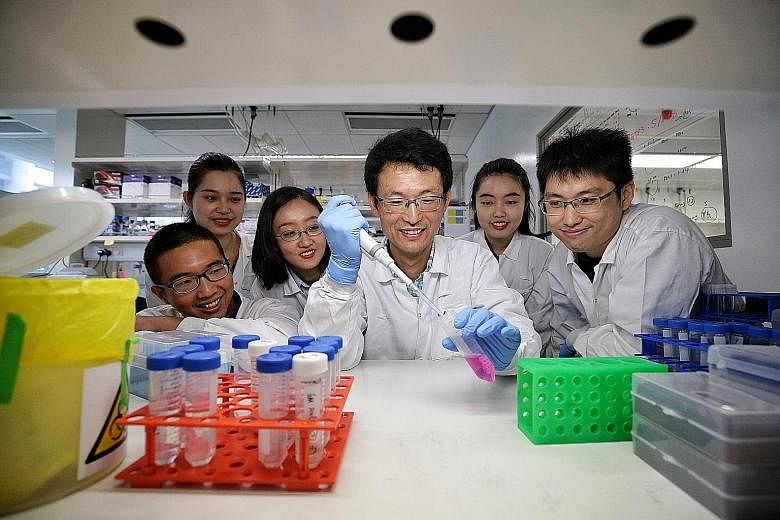National University of Singapore (NUS) scientists have developed a faster and cheaper way to create genetic material used in the research of disruptive agriculture.
The technology accelerates the tedious process labs go through to genetically modify their own micro-organisms for research.
A team at Singapore-MIT Alliance for Research and Technology (Smart), Massachusetts Institute of Technology's only research enterprise outside the US, conducted the research, with NUS a participating institution.
Professor Kang Zhou, from the NUS Chemical and Biomolecular Engineering Department, and Dr Xiaoqiang Ma, a postdoctoral associate from Smart, helped lead the team, which started working from January last year.
The research done is part of Singapore's effort to produce 30 per cent of its own food by 2030.
By accelerating research into microbes that are genetically modified to produce fertilisers, nutrients and pesticides, Smart's advancements will help increase crop yields in Singapore.
The technology is a step above most conventional processes that laboratories often resort to.
"Laboratories have to go to a company to order custom-made material, but often, we will only use 1 per cent of it. The rest will sit for months in the freezer before it's discarded as it's not designed for multiple-time use," Prof Zhou said.
Instead of relying on custom-created material, the method Smart has devised is highly accurate, meaning the genes can be selected and transferred more precisely, and "scarless", meaning that no extra DNA sequences that can affect gene functions are introduced.
While other methods have only about 50 per cent accuracy, the researchers reported 85.9 per cent accuracy in their paper published on July 23 in Nature Communications.
The method is also standardised and compatible with most popular DNA assembly methods, so researchers around the world can use and share the same material, Prof Zhou said.
Recent reports on climate change project that food security will be a major challenge for many countries in the future.
Droughts and floods in food-producing areas might affect both regional and global food supplies, causing the prices of everyday crops to fluctuate greatly.
Many policymakers and researchers have experimented with the idea of urban farming as possible solutions, where gardens and micro-farms that produce edible crops are integrated into dense urban space. Prof Zhou said, however, that urban farming is difficult as it can put a strain on land, water, and resources like pesticides.
The team hopes its method will allow researchers to produce their own material at a fraction of the time and cost. This will let researchers test many combinations of genes quickly, Prof Zhou added.

